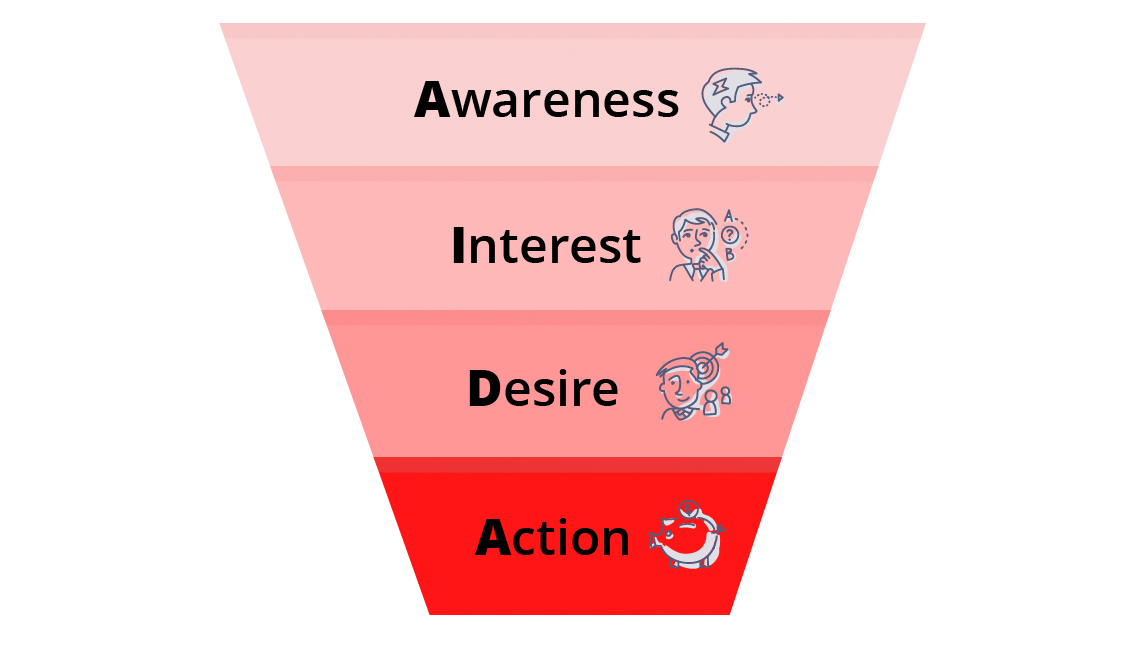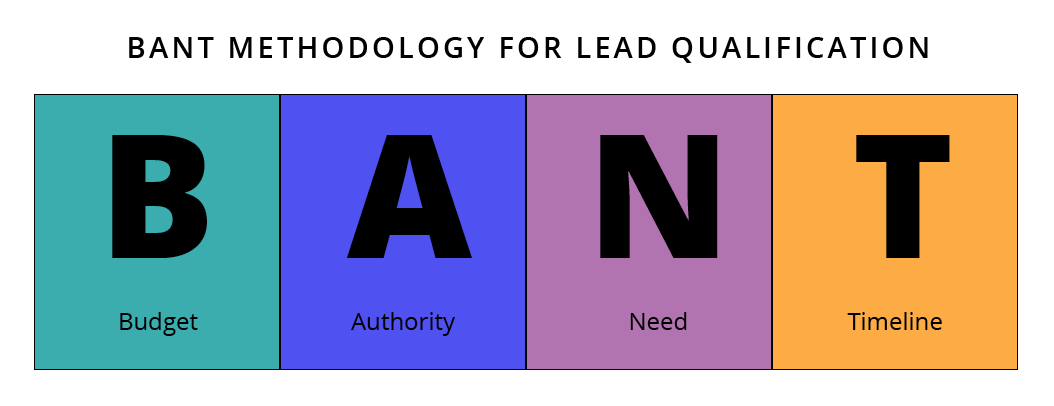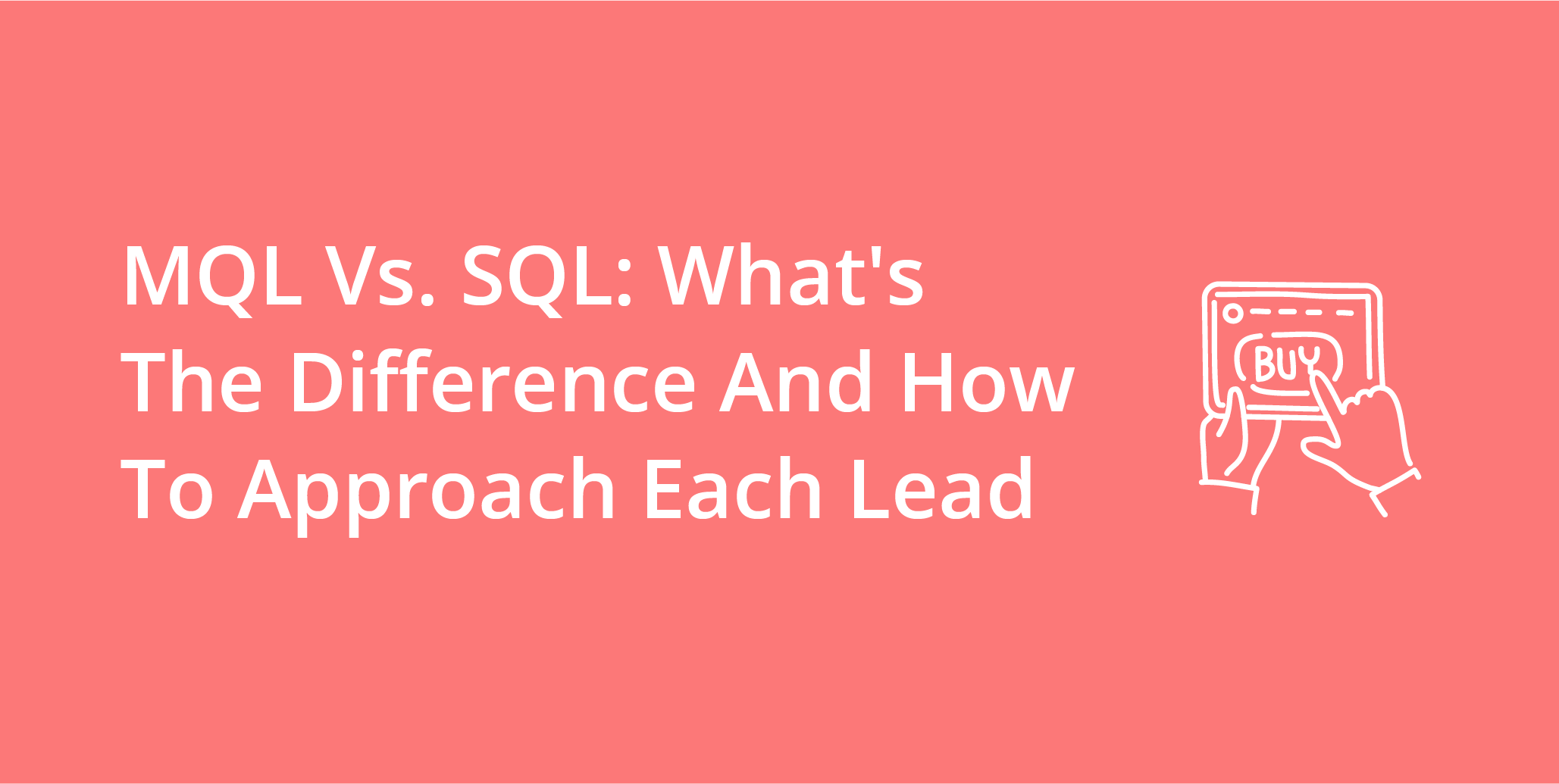Sales Qualified Leads vs. Marketing Qualified Leads
Your prospects must complete a long journey before becoming one of your paying customers.
Initially, they’re entirely unaware of your company, and may not even know they have a problem you could potentially solve for them.
The more interested they are in your product and the closer they are to making a purchase, the more qualified they become. Sales is all about helping people move further along this path to becoming a customer.
Understanding Qualified Leads and The Sales Funnel
Most purchases don’t just happen out of the blue; the prospect needs to be enticed, groomed, wooed, and impressed by what you offer, often over a significant period. They first need to be able to recognize your company and the problem it can solve for them. They need to have all the reasons not to buy from you dismissed from their mind, and this is a step-by-step ongoing process.
We usually think of this as a sales funnel. Unqualified leads start at the top of the funnel, and your marketing and sales works to move them to the bottom of the funnel, where they’re in a more qualified state and ready to make a purchasing decision.

MQL vs. SQL
It’s important to keep track of where a prospect is in the sales funnel because the marketing and sales techniques you will want to employ greatly differ based on how primed the customer is to make a purchase.
Those early in the funnel may be best courted with informative content whereas those who have indicated they’re almost ready to buy should be offered a more direct call-to-action, for instance.
Therefore, we often split qualified leads into marketing qualified leads (MQLs) and sales qualified leads (SQLs).
What is a Marketing Qualified Lead (MQL)?
A marketing qualified lead (MQL) is a lead that has so far engaged only with top-of-the-funnel content. They’re most likely in the research phase of the buying process, scoping out solutions for a problem they have.
Let’s say you sell washing machines. An MQL may have visited your informational pages such as ‘is it better to buy or lease a washing machine?” or found your site by searching for “most economical washing machines”. They’re not yet ready to buy, but they’re certainly a qualified lead that’s shown interest in what you have to offer.
MQLs are typically the responsibility of the marketing department or inbound sales representatives, whose job is to turn the MQL into an SQL through marketing and outreach.
What is a Sales Qualified Lead (SQL)?
A sales qualified lead (SQL) is a person who has engaged with content further down your sales funnel. SQLs have typically already done their research and are now figuring out how to make a purchase.
In our example, an SQL may be choosing between laundry machines on your website, checking delivery rates, or calling you for specific quotes. They may have spoken to an inbound sales agent in the past and indicated they’re likely to want to decide on a product soon.
SQLs are often handled by account executives. In this final step, the deal can be concluded while nurturing a business relationship that will go on.
It’s Important to Differentiate SQLs vs. MQLs
Accurately differentiating between MQLs and SQLs keeps costs low. Only a small percentage of MQLs will ultimately become customers, so the amount you spend on every individual MQL should remain low. On the other hand, SQLs are much more qualified leads, so warrant more time and effort to convert them.
It’s crucial to differentiate between SQLs and MQLs in the sales process so you can offer them the right lead nurturing experience. If you send an SQL basic information that outlines all your products, it’s not relevant to where they are in the buyer’s journey. Similarly, phoning an MQL to close a sale is more often than not going to fail, as they haven’t yet been primed to make a purchase.
Qualifying a Lead
Qualifying a lead is one of the more difficult parts of a salesperson’s job. You can use the BANT methodology to get an overview of how hot a lead is and whether they should be considered an SQL:
- Budget – Do they have the budget required to buy your products or services?
- Authority – Do they have the authority in their company to make purchasing decisions?
- Need – Do they have a problem your product can solve?
- Timeline – Are they ready to make a purchase within an amenable timeframe?
Your sales representatives should attempt to get information on each of these qualifying factors from leads during discovery calls. You’ll rarely be working with perfect information, but the answers to these types of questions can give a strong indication of whether a lead is an SQL.

Transitioning from MQL to SQL
Transitioning from MQL to SQL can be a little tricky because there are often multiple departments involved. As a customer goes through the sales funnel, they might initially be the responsibility of the marketing department, then handed to outbound sales agents who qualify the leads. Finally, an account executive may handle the final quotes and manage the business relationship going forward.
To minimize confusion or double work, it’s important to have a consistent in-house definition of what constitutes an MQL and an SQL. This way, each department knows where their work begins and ends.
A typical handoff process may go as follows:
- The marketing department identifies an MQL and initiates several lead nurturing campaigns, from targeted email marketing to social media interaction.
- The MQL makes further qualifying actions, such as downloading more content, asking questions via live chat, or subscribing to a newsletter.
- Upon taking enough actions, the MQL can be upgraded to a potential SQL.
- The sales team will reach out to the lead and ask a few qualifying questions. If the lead is ready to make a decision, they are promoted to SQL. Otherwise, they remain an MQL and nurturing will continue.
As long as you have a consistent definition of MQLs and SQLs in your organization, multiple departments can focus on different parts of the sales process, making for the most efficient sales funnel possible.



